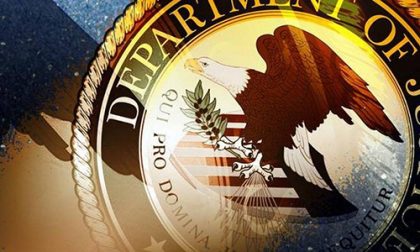DOJ to Delay Enforcement of Wire Act Reversal Opinion Until June
The US Department of Justice (DOJ) has confirmed that it will extend its previously announced non-prosecution period associated with its reversal opinion regarding the reach of the 1961 Wire Act for into online gambling for an additional 60 days, to be added to an original and ongoing 90-day grace period announced within the January 2019 update and memorandum on the matter sent to all US Attorney General offices by Assistant USAG Rod Rosenstein.
The additional extension stretches the compliance date to June 14, 2019, and comes as the DOJ’s reversal opinion encounters increasing legal headwinds, including the lawsuit filed against the DOJ less than three weeks ago by the New Hampshire Lottery Commission (NHLC). The DOJ has not formally announced the extra 60-day extension — though that may come as early as today, to again be distributed to all US Attorney General offices — but department spokespersons have confirmed the extension to multiple news outlets.
 The extension may well be designed by the DOJ to allow additional action in the New Hampshire lawsuit to occur. That matter will be heard in the US District Court in New Hampshire, where a hearing on a summary-judgment motion made by the State of New Hampshire will be heard. According to gaming attorney Daniel Wallach, who has been closely tracking the developments:
The extension may well be designed by the DOJ to allow additional action in the New Hampshire lawsuit to occur. That matter will be heard in the US District Court in New Hampshire, where a hearing on a summary-judgment motion made by the State of New Hampshire will be heard. According to gaming attorney Daniel Wallach, who has been closely tracking the developments:
ROCKET DOCKET: @NHLottery lawsuit against DoJ over new Wire Act opinion will likely come to a head on April 10th or 11th, when the summary judgment motions will be orally argued before Judge Barbadoro. All briefing on the MSJ and likely cross-motion to be completed by April 8th.
— Daniel Wallach (@WALLACHLEGAL) March 2, 2019
By that time a second lawsuit filed against the DOJ on the matter, this one by Neopollard Interactive and Pollard Banknote Limited, is expected to be rolled into the action. The two firms are service providers for New Hampshire’s iLottery offerings and are likely to have their services directly impacted by the DOJ’s Wire Act reinterpretation.
The US’s First Circuit is viewed as being generally favorable to the viewpoint of several of its states that the Wire Act applies only to sports betting. Virtually every state in the Circuit would be affected by the expanded “RAWA”-style reach of the DOJ’s latest reversal, most often in the area of multi-state lottery agreements, which would cost a state even of New Hampshire’s smallish population tens of millions of dollars. The First Circuit is also the location of the ruling in the 2014 case US v. Lyons, which held that the Wire Act applied only to sports betting. As such, the First Circuit is likely already bound by established case precedent. As Wallach Tweeted about it last month:
NH Lottery relies on the U.S. v. Lyons CA1 decision (https://t.co/Efi7pL9TRB ) holding that the Wire Act applies only to sports betting. This decision is binding precedent in the 1st Circuit (which includes New Hampshire). Game over.
— Daniel Wallach (@WALLACHLEGAL) February 15, 2019
The US v. Lyons case directly looked at the reach of the Wire Act, and while it upheld the convictions of the case’s defendants on various Wire Act violations connected to the running of an illegal sports-betting operation, partly through an online, offshore book, the appellate court’s findings quite simply declared: “The Wire Act applies only to ‘wagers on any sporting event or contest,’ that is, sports betting.” This line is expected to serve as the binding precedent in the NH lawsuit. The lawsuit asks for summary judgment, translating as the immediate invalidation of the DOJ’s January opinion.




















COMMENTS